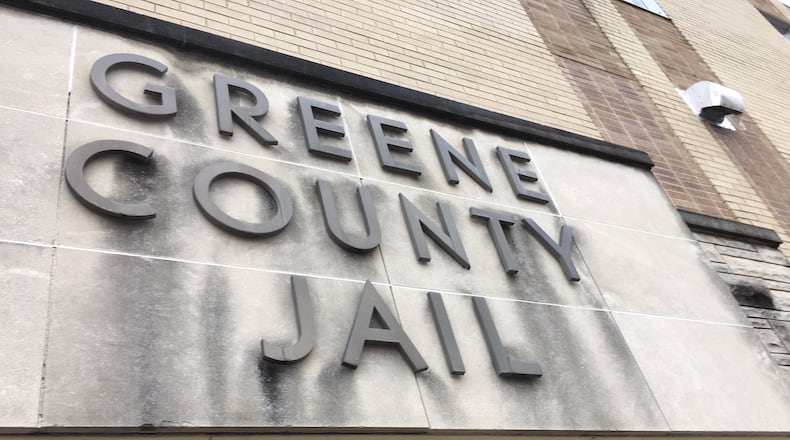Opponents of the county building a new jail said the company’s work is concerning. County administrator’s said HDR’s work is intended to get the message out about the need for a new jail.
HDR’s scope of services includes a communication plan, which among other things involves executing a social listening campaign to monitor all media, according to its contract. The plan would define and identify potential risks, trending issues, project/industry influencers, and user demographics, to be provided in weekly social media analytics and monitoring reports to the county through November, when a sales tax ballot issue appears on the ballot.
HDR conducted digital media monitoring of all online mentions that could be related to the Greene County jail project from May 25 to June 23, per the company’s social listening report. Among keywords and phrases tracked by the company are “Greene County Coalition for Compassionate Justice,” and “Greene County Citizens Against Giant Jail group.” Both are names of jail opposition groups.
HDR also tracked news articles and location-based keywords like criminal justice and justice reform. These online conversations were then analyzed to determine user sentiment about the Greene County Jail and Sheriff’s Office, most of which was found to be neutral.
HDR also is developing a public involvement plan, intended to educate stakeholders and the overall community about the proposed solution, according to the contract. In return for these, as well as a concept site, renderings, and cost estimate, the commissioners will pay HDR just over $49,000.
The commissioners hired HDR on April 2. HDR has also been hired by Montgomery County in its review of its jail.
This information is collected by HDR’s STRATA team, which according to its marketing uses data analytics to “manage social and political risk.”
“Controversy is costly, both in reputation and in dollars,” STRATA’s advertising document reads. “Social and political risk deserves attention at the planning stage of a project or program, where it can be carefully assessed and when there is time to develop strategies to mitigate or diminish risk.”
HDR did not return a request for comment.
Assistant county administrator Lisa Hale said the communication plan is intended to inform voters about the levy issue, and that monitoring individual citizens “couldn’t be further from our goal.”
“What we were particularly interested in, from this aspect of their work, was what they call a ‘meeting in a box,’ developing materials that would be useful for getting the message out there,” she said. “It would hone in on the key things that people were talking about: if it was too high of a tax, too big of a jail, where then we could say, ‘Here’s why we’re doing this, here’s what we’re thinking of, here’s what’s not true.’ That was the full extent of our intention.”
However, the inclusion of digital monitoring has sparked ire among activist groups, some of which say they plan to tailor their social media presence now that they know HDR is listening.
“It’s disgusting, infuriating to read that when we have really been above board in terms of approaching people and finding a solution to eliminate the jail population,” said Bomani Moyenda, a Yellow Springs resident who is opposed to the jail.
Jill Becker, a member of Greene County Coalition for Compassionate Justice who has said if the county builds a new jail it should offer more mental health services, is concerned about the hiring of HDR.
“There is a lot of frustration with not having the mental health and substance abuse problems addressed directly with designated funding as part of the new jail proposal,” said Jill Becker, a member of Greene County Coalition for Compassionate Justice. “Why would the commissioners spend taxpayer dollars for surveillance on citizens, but can’t find the money to spend on mental health and addiction treatment?”
There is some consensus among both activists and county officials of the need for a new jail. The Greene County Sheriff’s office has said that the current jail does not have space for inmates with health problems or other special needs, nor space for inmates to visit family. However, advocates say they would like to see money put towards a smaller jail, with increased services addressing drug addiction and mental health.
Such asks have largely been met with “closed doors and lip service,” Moyenda said.
“HDR has been doing this kind of thing for years in projects across the country. So it’s interesting that they would choose that particular firm knowing that was in the background,” he said.
Hale said that the county is looking into improved services through the Mental Health Recovery Board (MHRB), but plans for such would not be included on November’s ballot.
“It wouldn’t be one particular organization, it could be community partners that provide those different aspects, but it’s unlikely we’ll have those finalized before we vote in November,” she said.
HDR has not yet provided Greene County with its final communications plan, though the document is expected in the near future.
The Greene County Jail is a $6-million issue on November’s ballot. The proposed 384-bed jail is estimated to cost $50 million, funded by a 0.25% tax increase. The tax bump is expected to generate $6 million annually until the jail is paid off. Voters shot down a similar tax increase for a 500-bed jail in April 2020.
Currently, the Greene County jail and Adult Detention Center have a combined 382 beds.
About the Author

